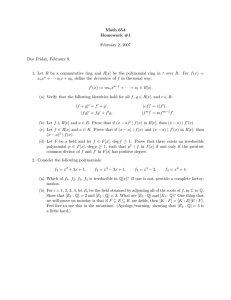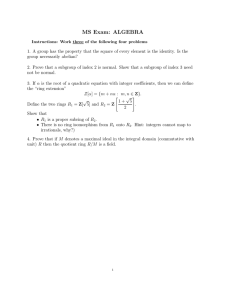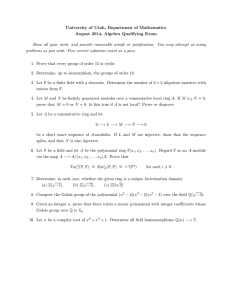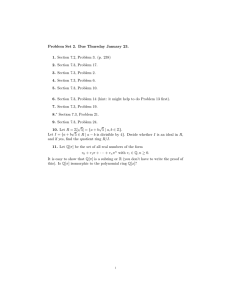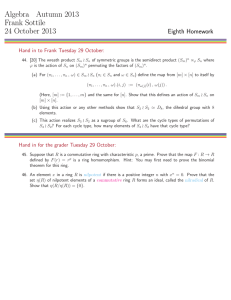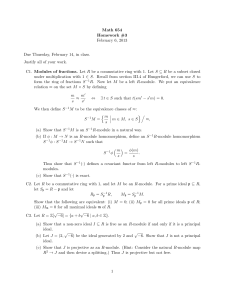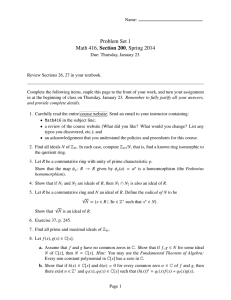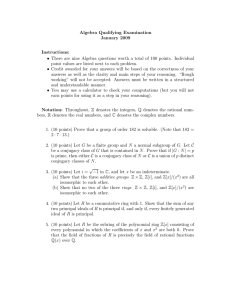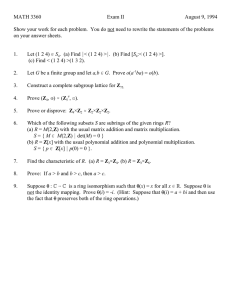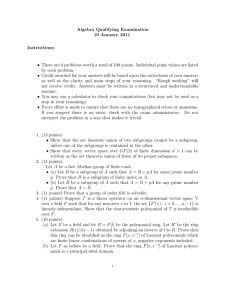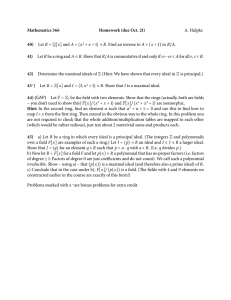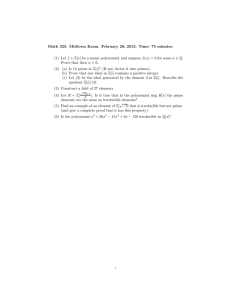Math 323. Midterm Exam. February 28, 2013. Time: 75 minutes.
advertisement
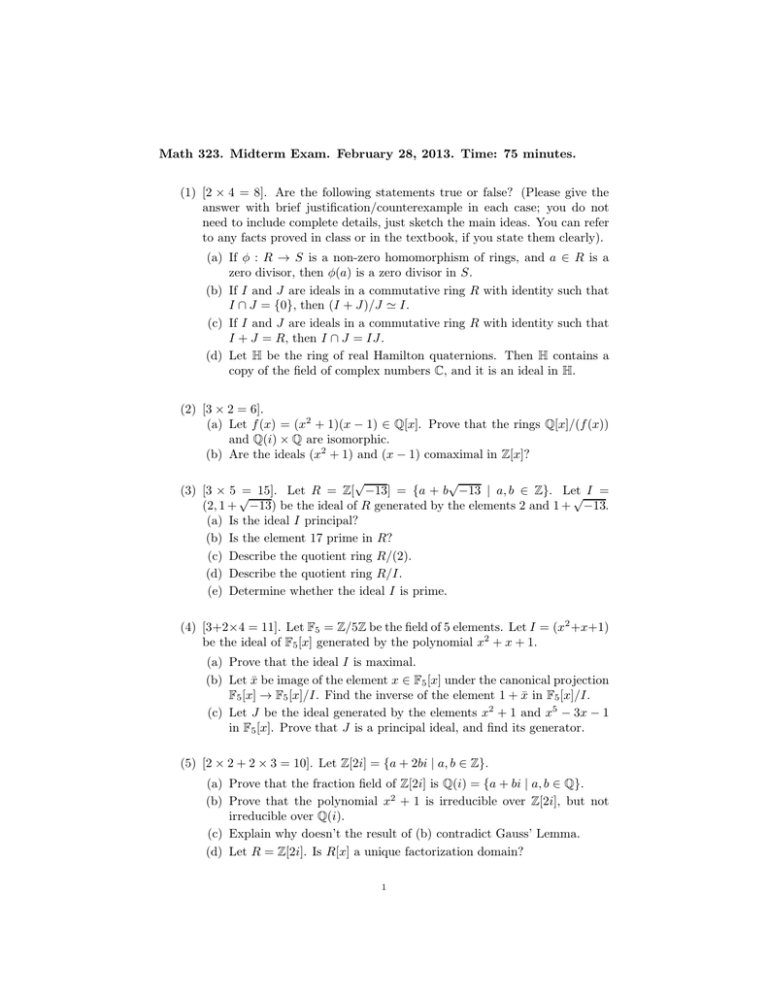
Math 323. Midterm Exam. February 28, 2013. Time: 75 minutes.
(1) [2 × 4 = 8]. Are the following statements true or false? (Please give the
answer with brief justification/counterexample in each case; you do not
need to include complete details, just sketch the main ideas. You can refer
to any facts proved in class or in the textbook, if you state them clearly).
(a) If φ : R → S is a non-zero homomorphism of rings, and a ∈ R is a
zero divisor, then φ(a) is a zero divisor in S.
(b) If I and J are ideals in a commutative ring R with identity such that
I ∩ J = {0}, then (I + J)/J ≃ I.
(c) If I and J are ideals in a commutative ring R with identity such that
I + J = R, then I ∩ J = IJ.
(d) Let H be the ring of real Hamilton quaternions. Then H contains a
copy of the field of complex numbers C, and it is an ideal in H.
(2) [3 × 2 = 6].
(a) Let f (x) = (x2 + 1)(x − 1) ∈ Q[x]. Prove that the rings Q[x]/(f (x))
and Q(i) × Q are isomorphic.
(b) Are the ideals (x2 + 1) and (x − 1) comaximal in Z[x]?
√
√
(3) [3 × 5 √
= 15]. Let R = Z[ −13] = {a + b −13 | a, b ∈ Z}. Let
√I =
(2, 1 + −13) be the ideal of R generated by the elements 2 and 1 + −13.
(a) Is the ideal I principal?
(b) Is the element 17 prime in R?
(c) Describe the quotient ring R/(2).
(d) Describe the quotient ring R/I.
(e) Determine whether the ideal I is prime.
(4) [3+2×4 = 11]. Let F5 = Z/5Z be the field of 5 elements. Let I = (x2 +x+1)
be the ideal of F5 [x] generated by the polynomial x2 + x + 1.
(a) Prove that the ideal I is maximal.
(b) Let x̄ be image of the element x ∈ F5 [x] under the canonical projection
F5 [x] → F5 [x]/I. Find the inverse of the element 1 + x̄ in F5 [x]/I.
(c) Let J be the ideal generated by the elements x2 + 1 and x5 − 3x − 1
in F5 [x]. Prove that J is a principal ideal, and find its generator.
(5) [2 × 2 + 2 × 3 = 10]. Let Z[2i] = {a + 2bi | a, b ∈ Z}.
(a) Prove that the fraction field of Z[2i] is Q(i) = {a + bi | a, b ∈ Q}.
(b) Prove that the polynomial x2 + 1 is irreducible over Z[2i], but not
irreducible over Q(i).
(c) Explain why doesn’t the result of (b) contradict Gauss’ Lemma.
(d) Let R = Z[2i]. Is R[x] a unique factorization domain?
1
